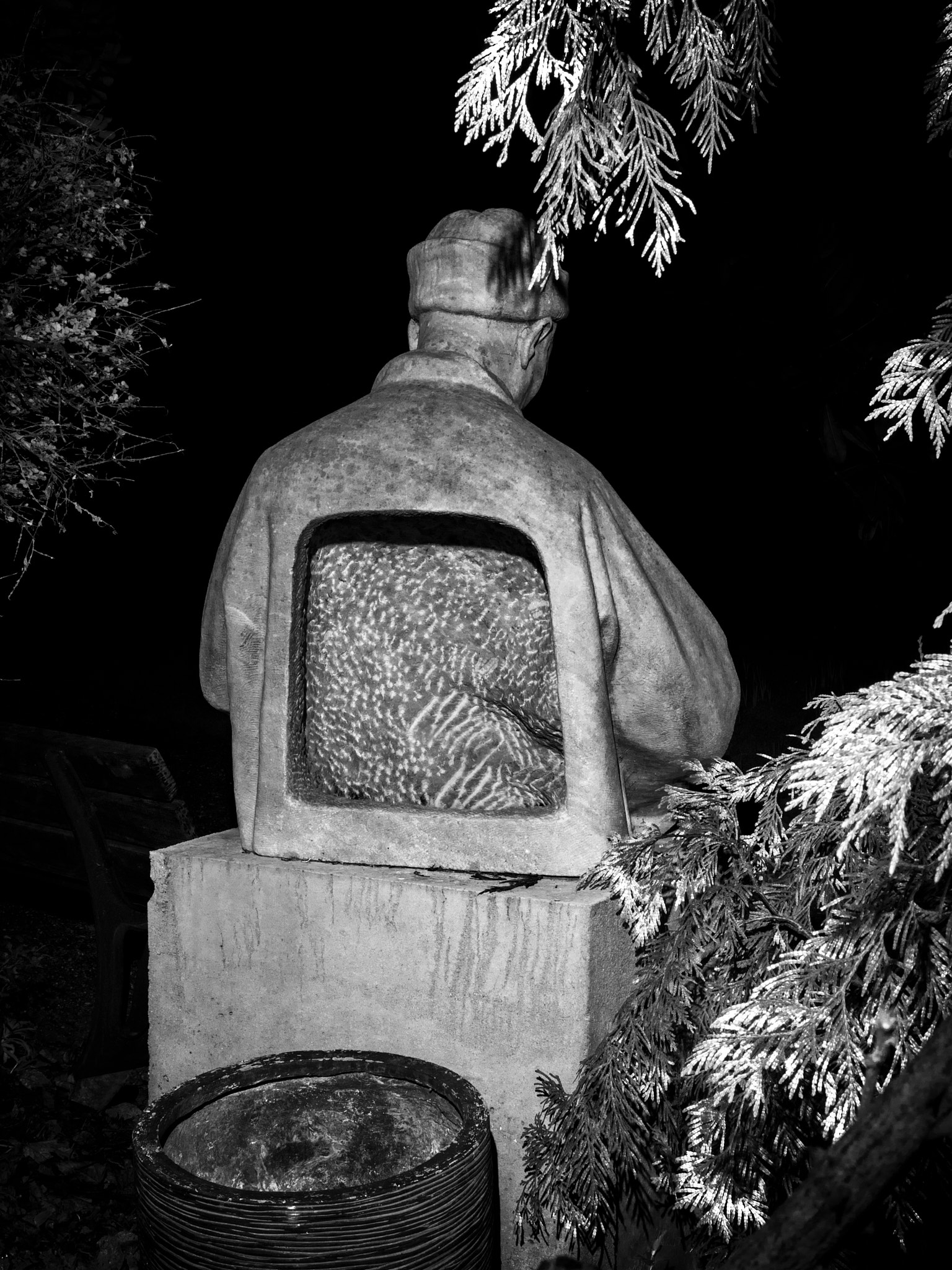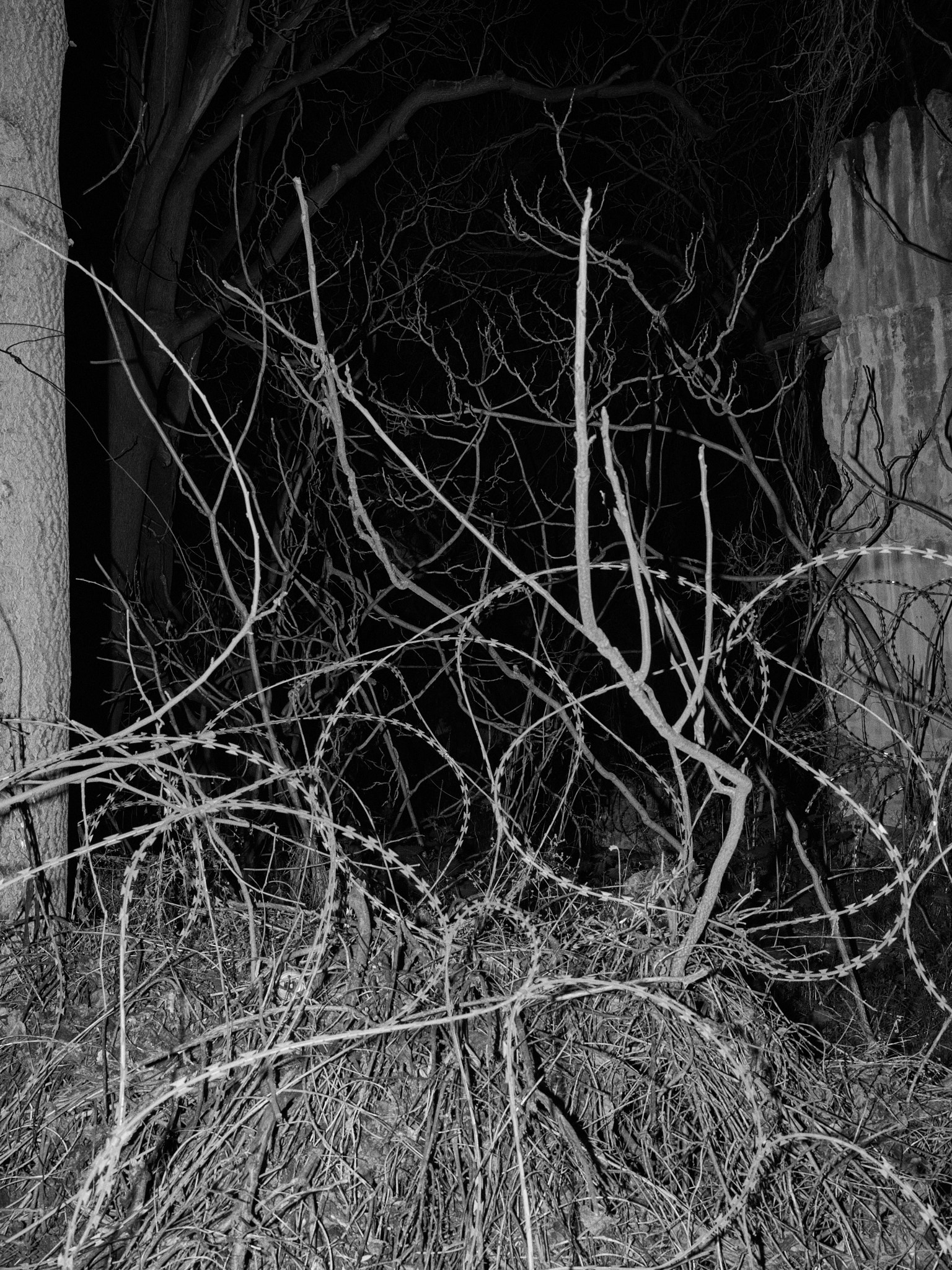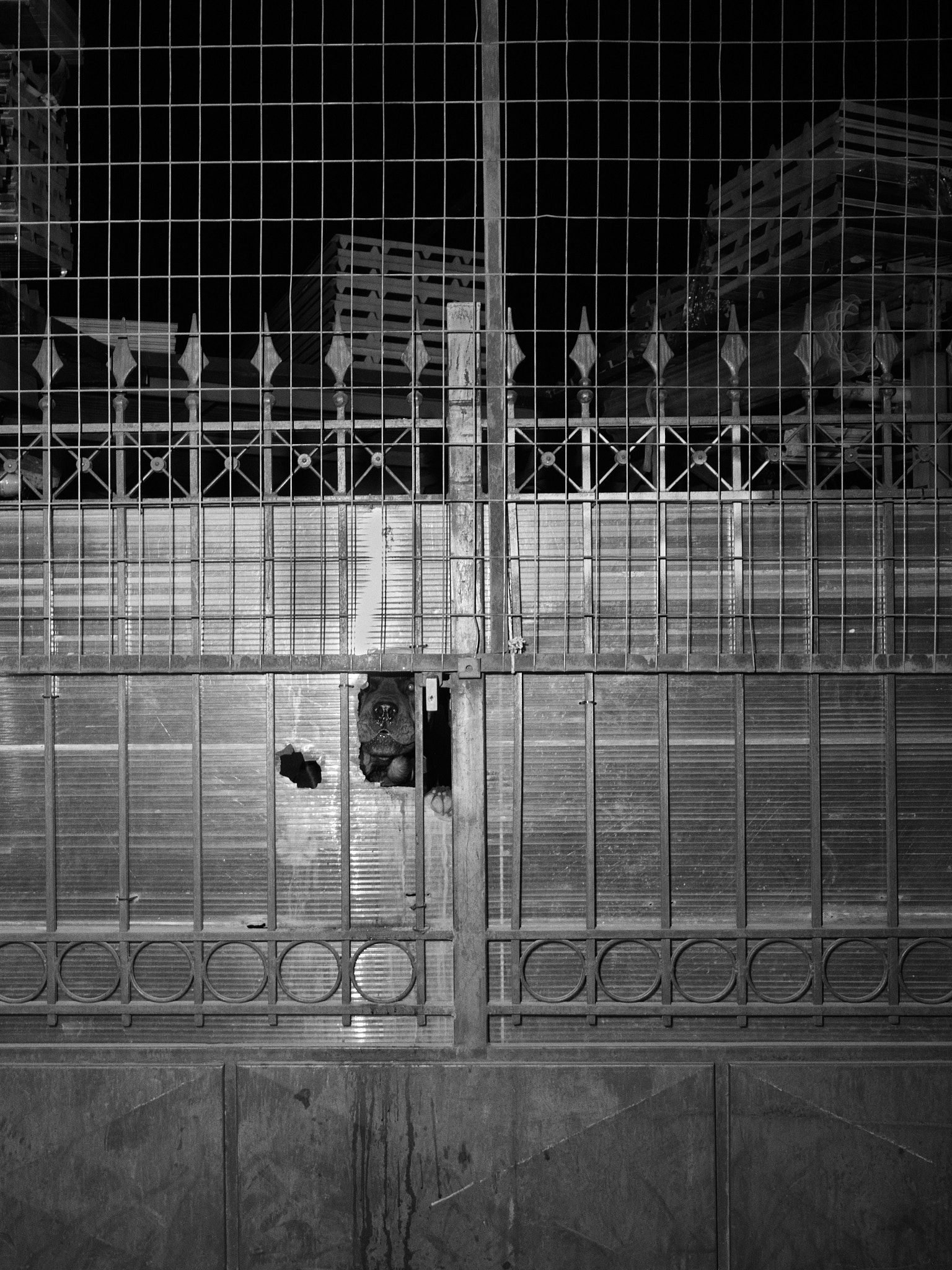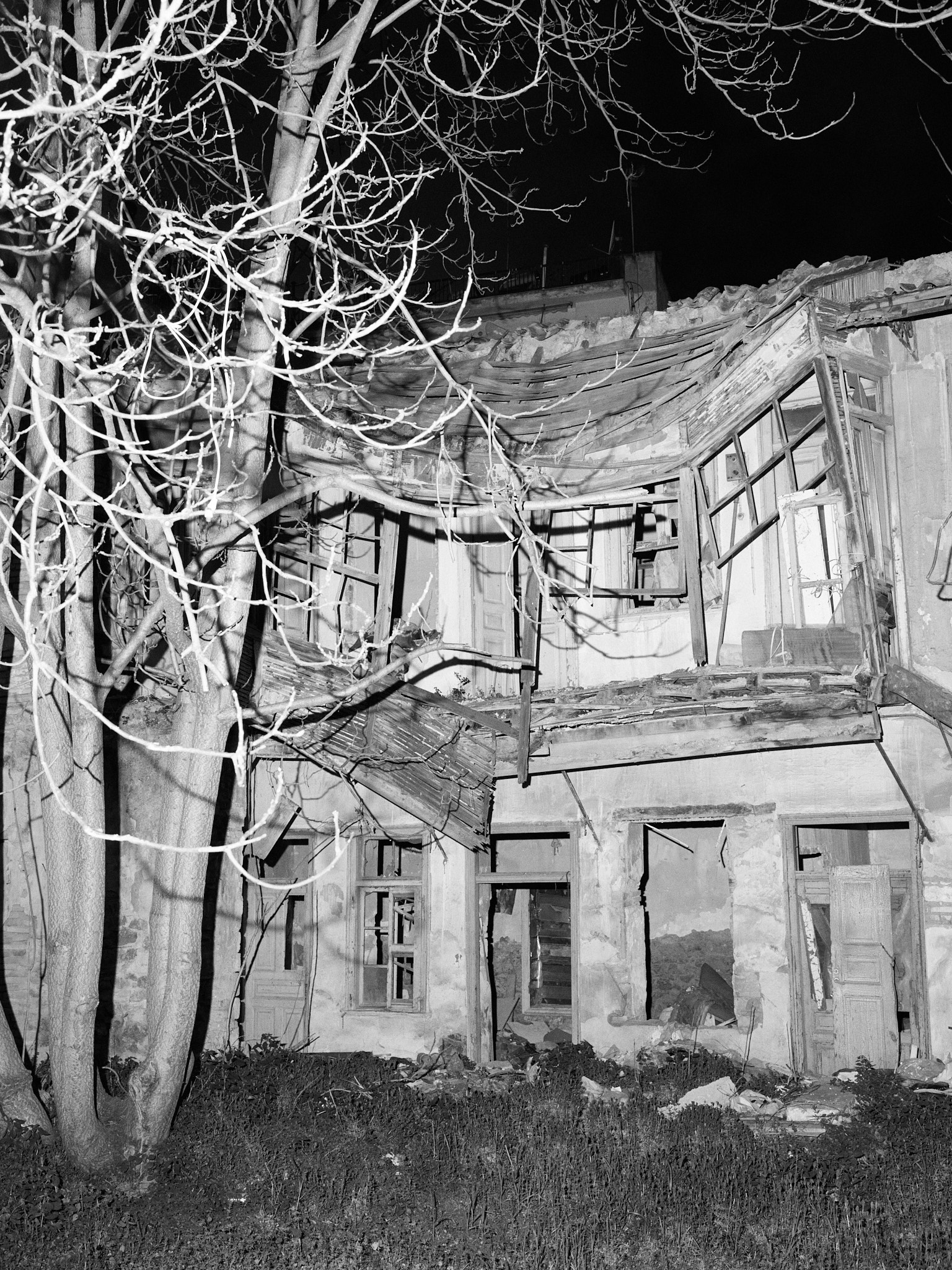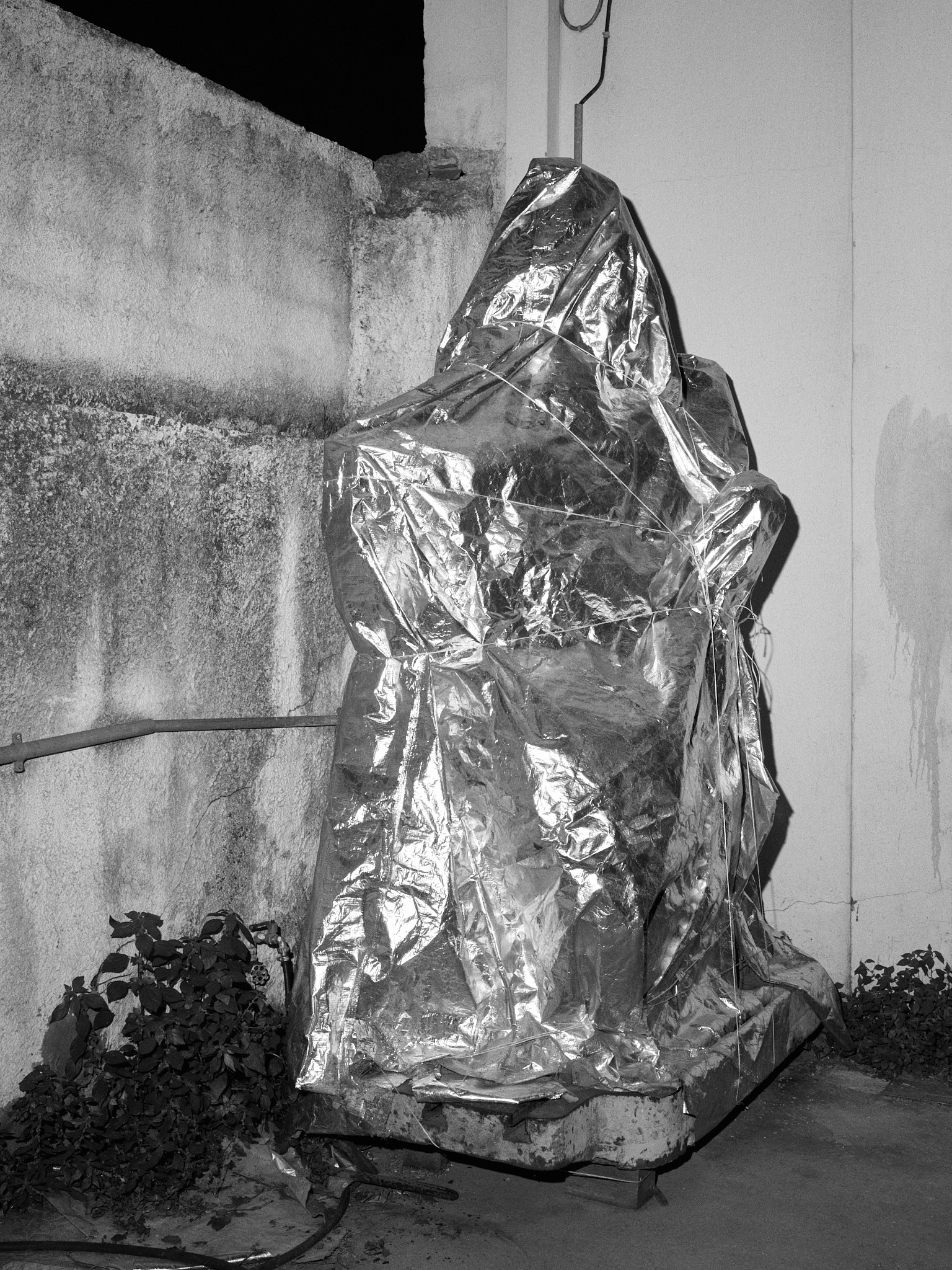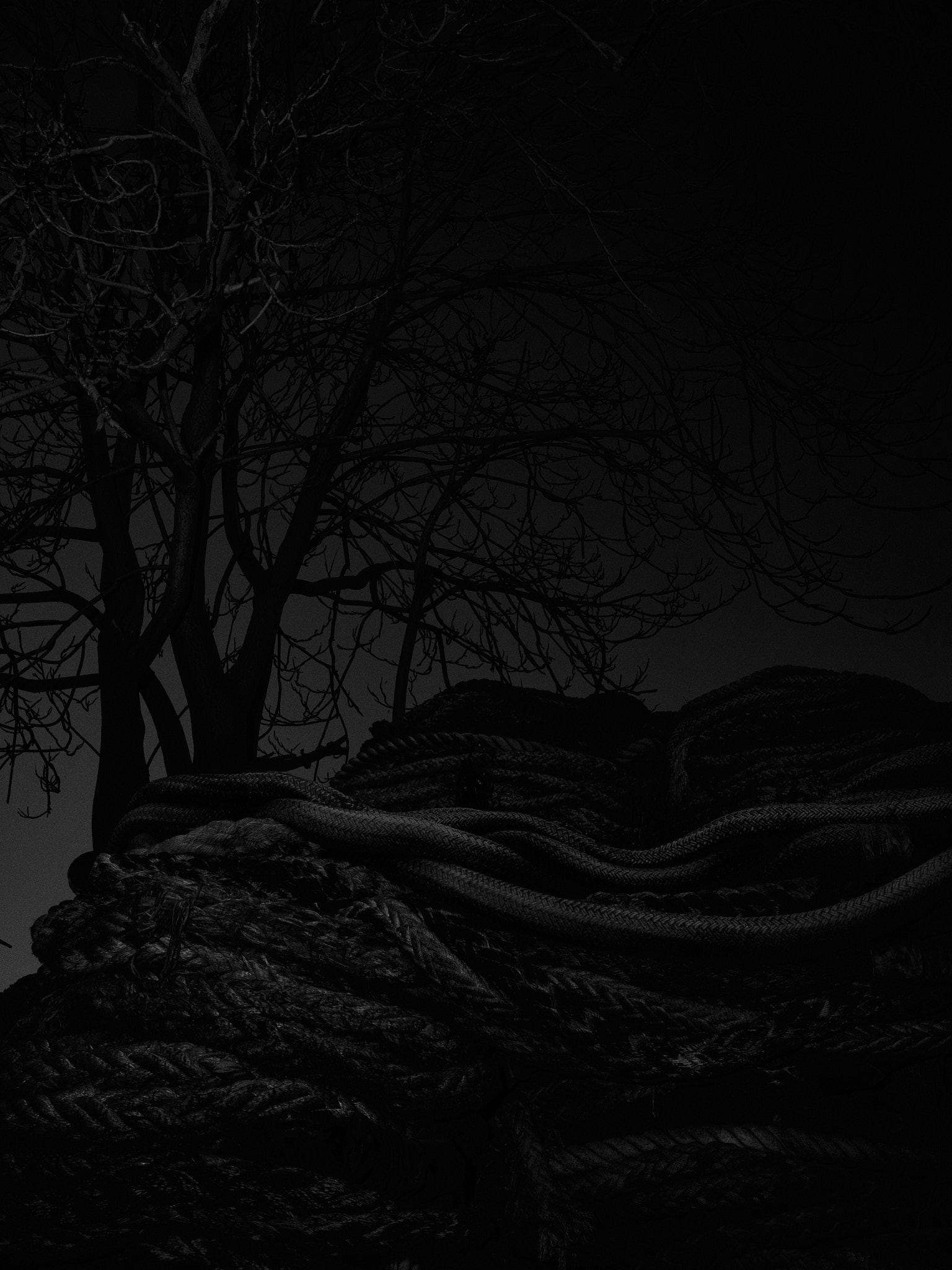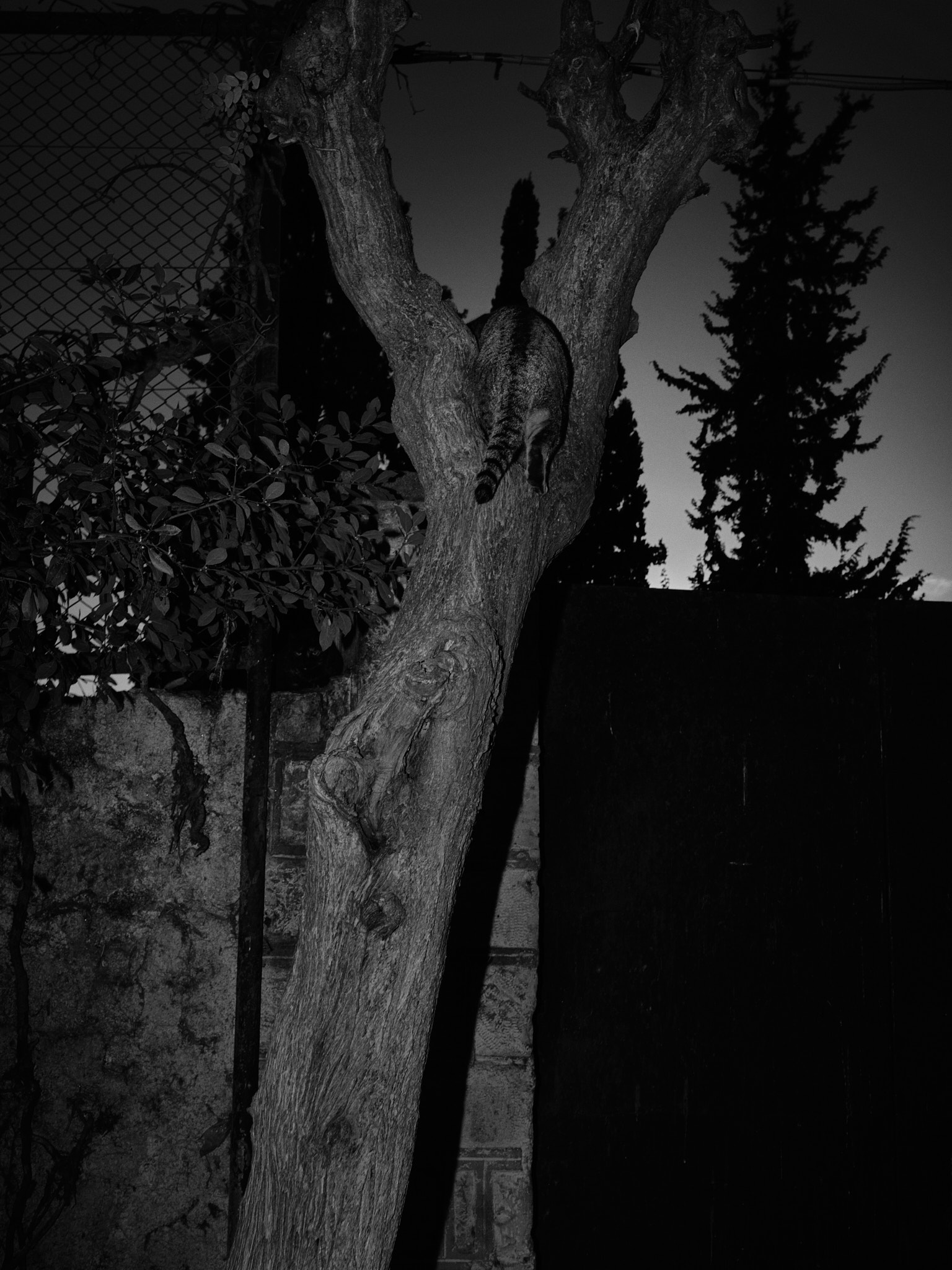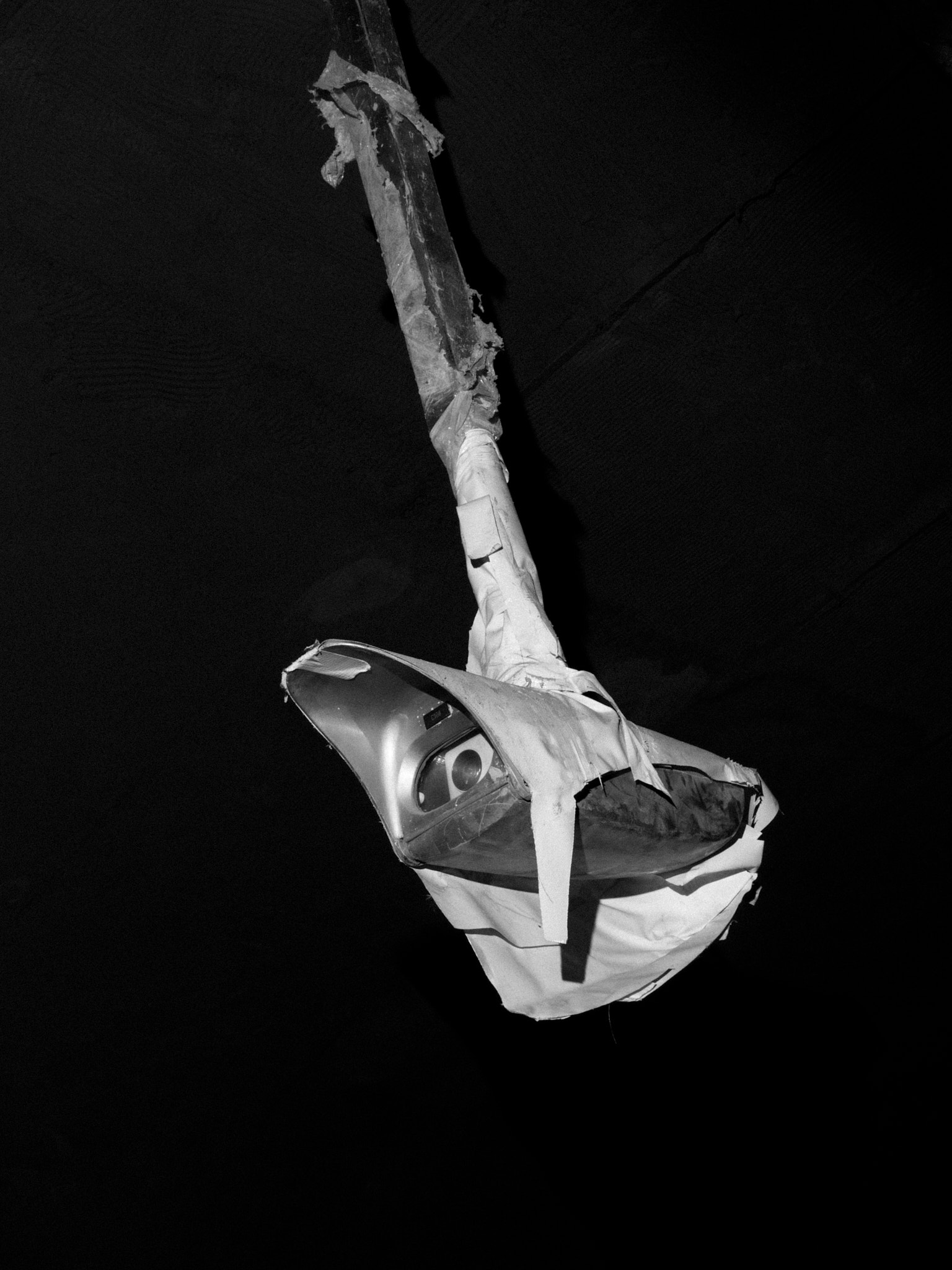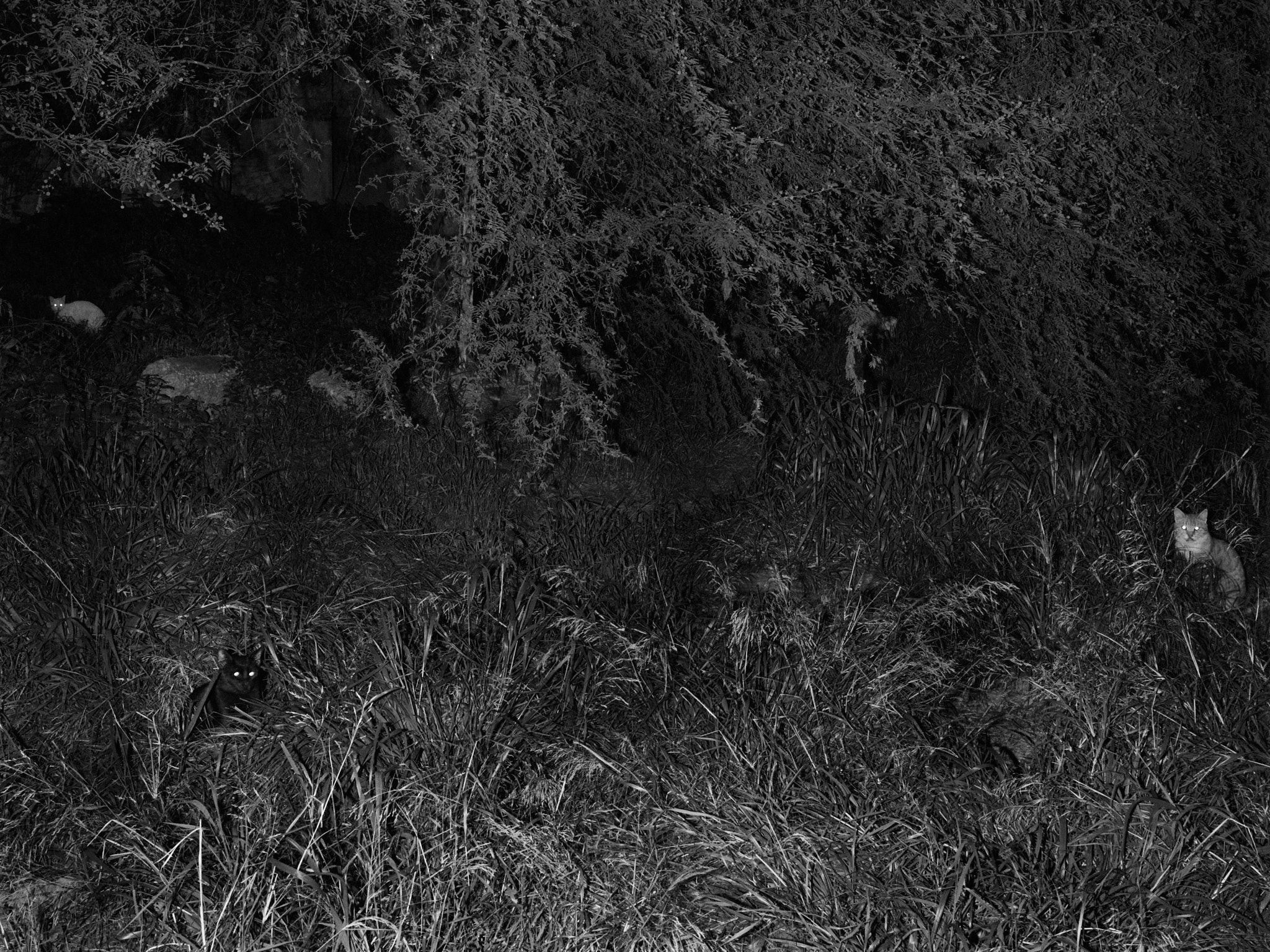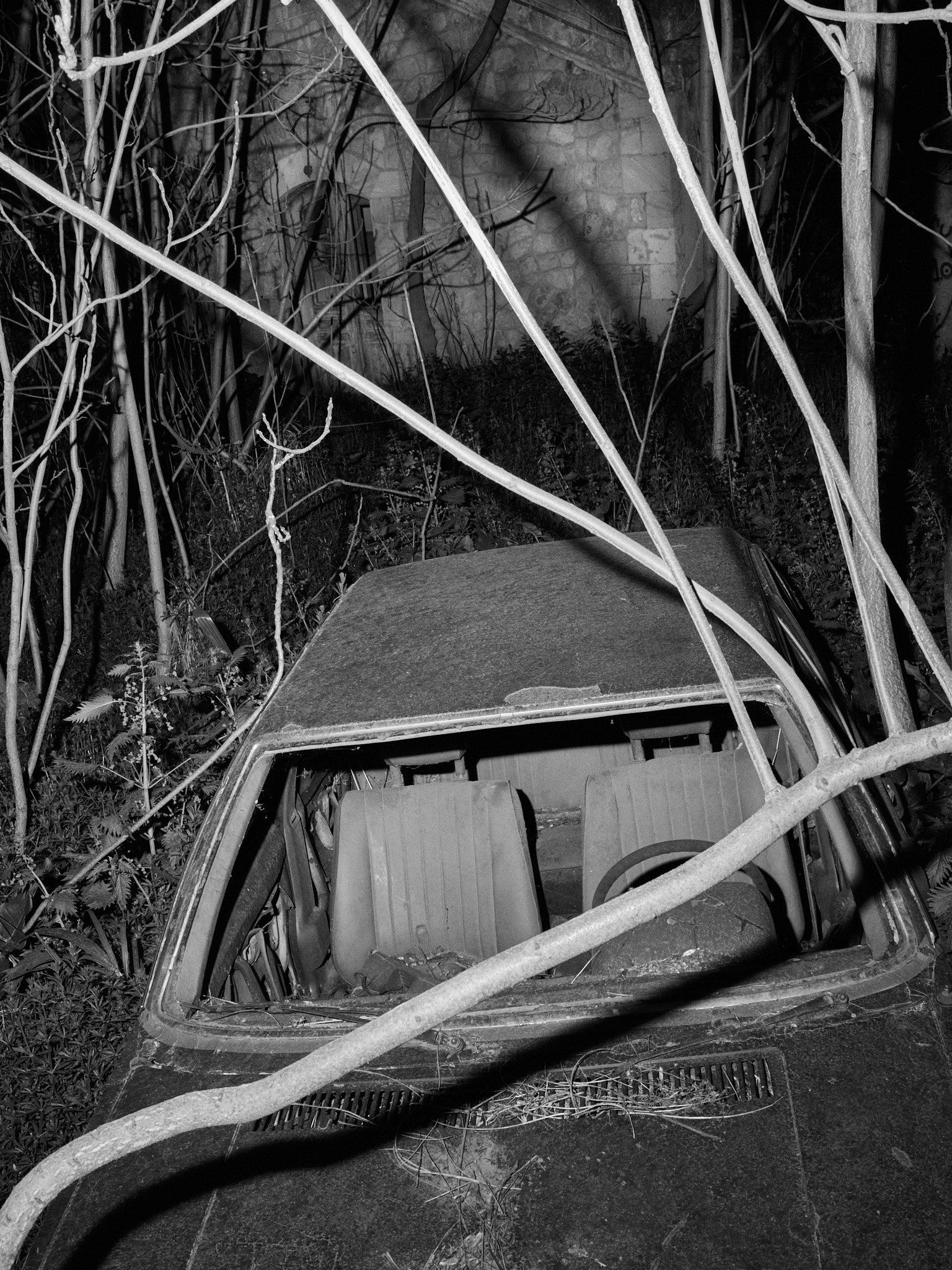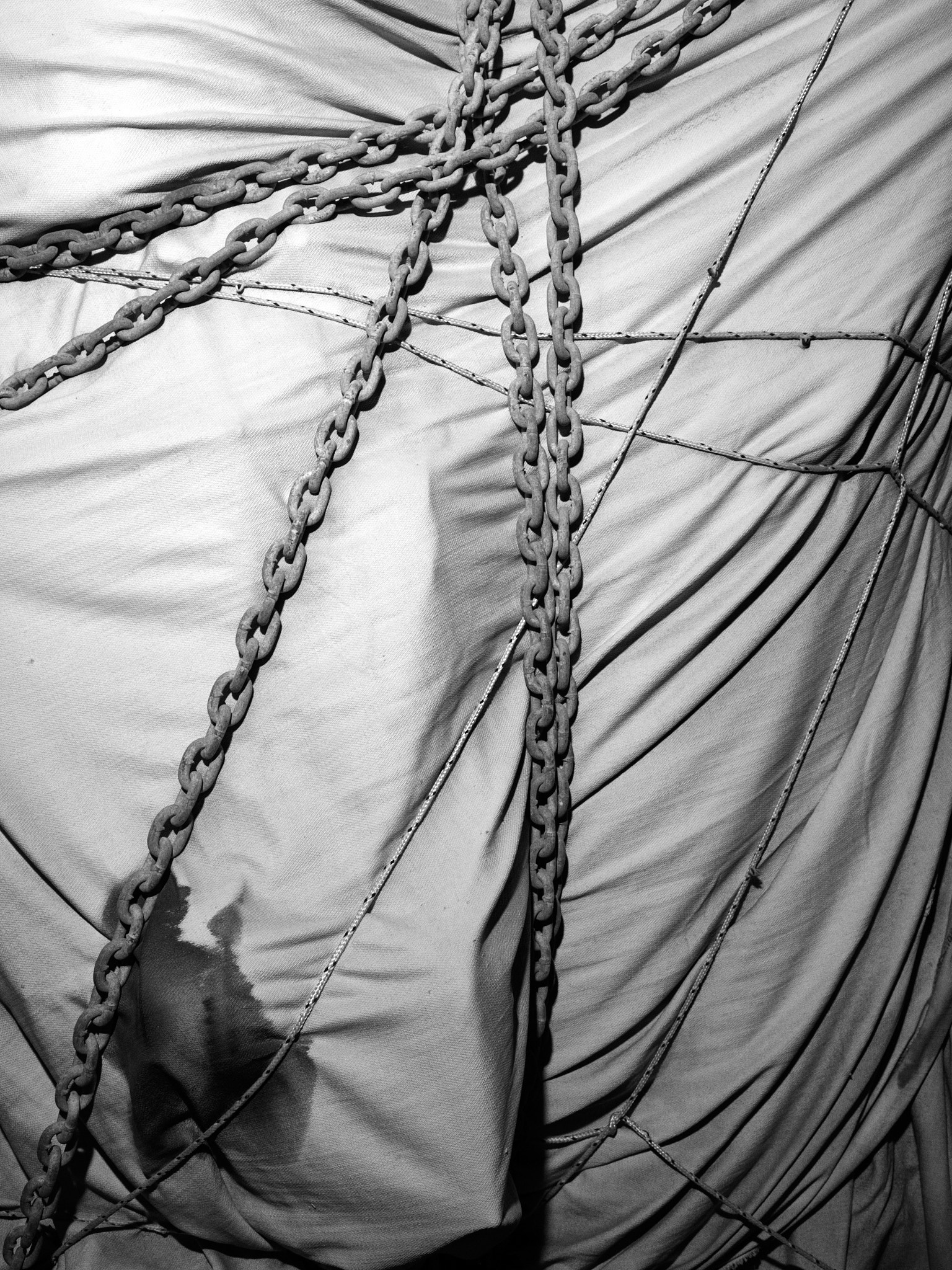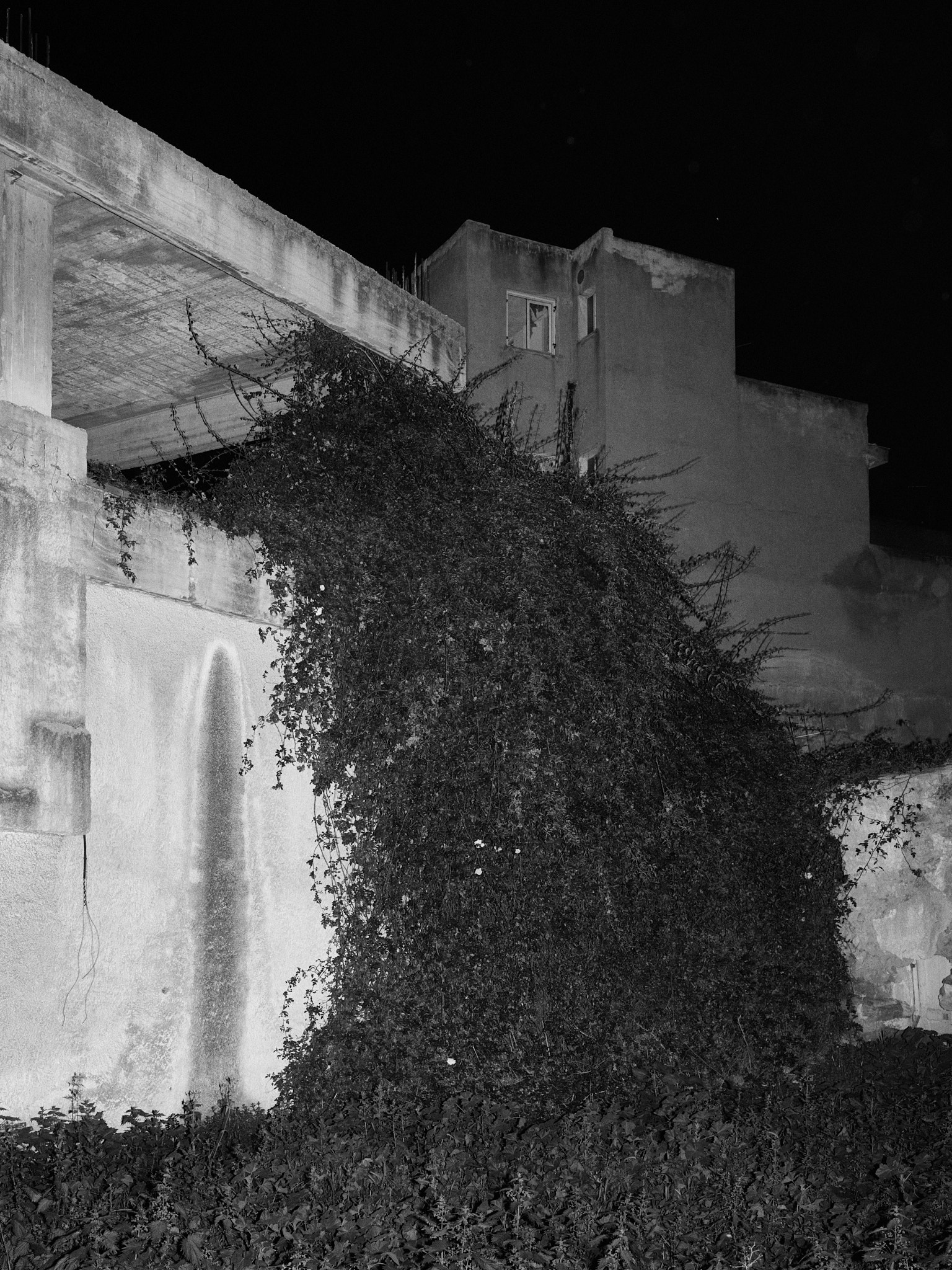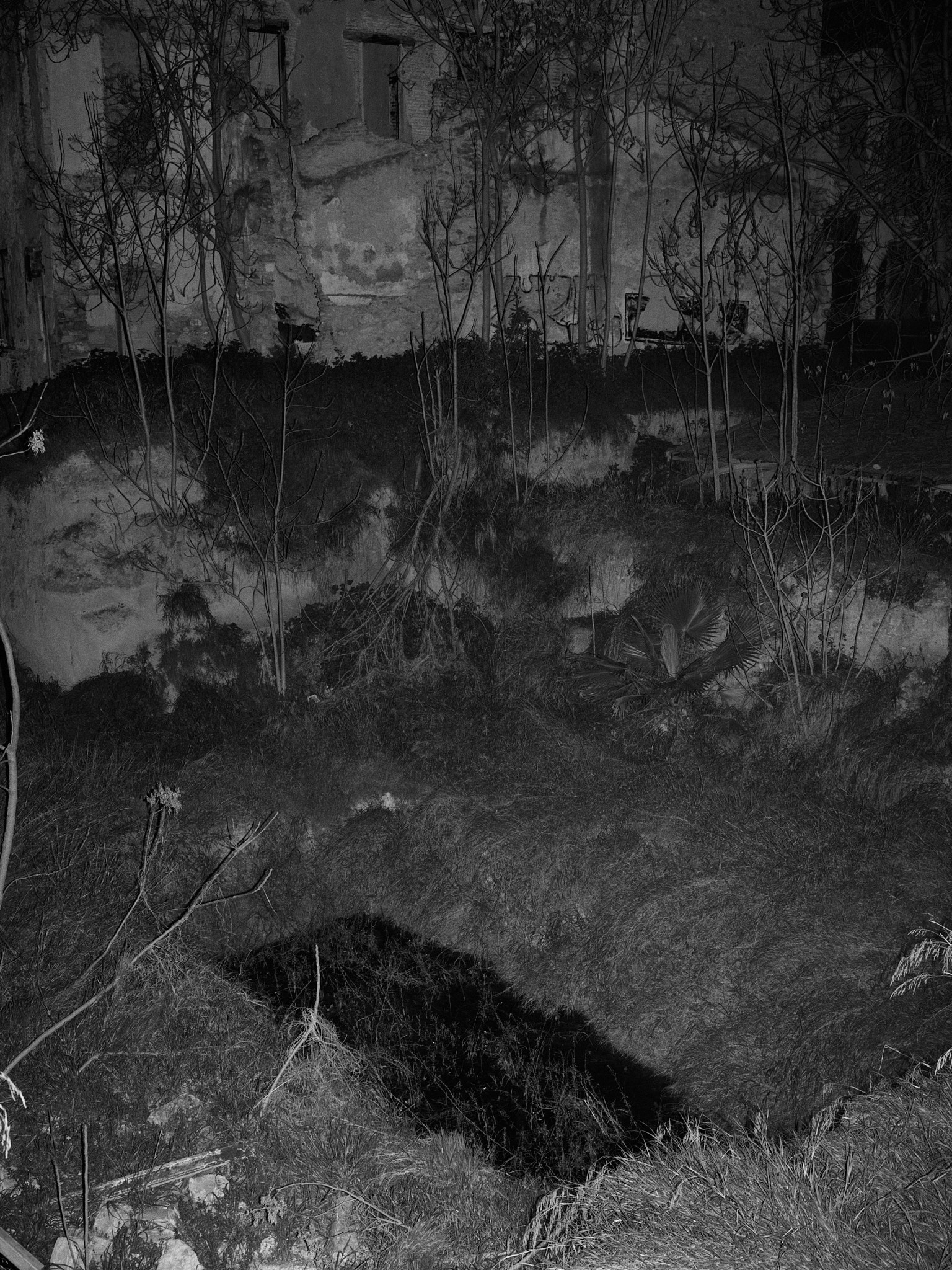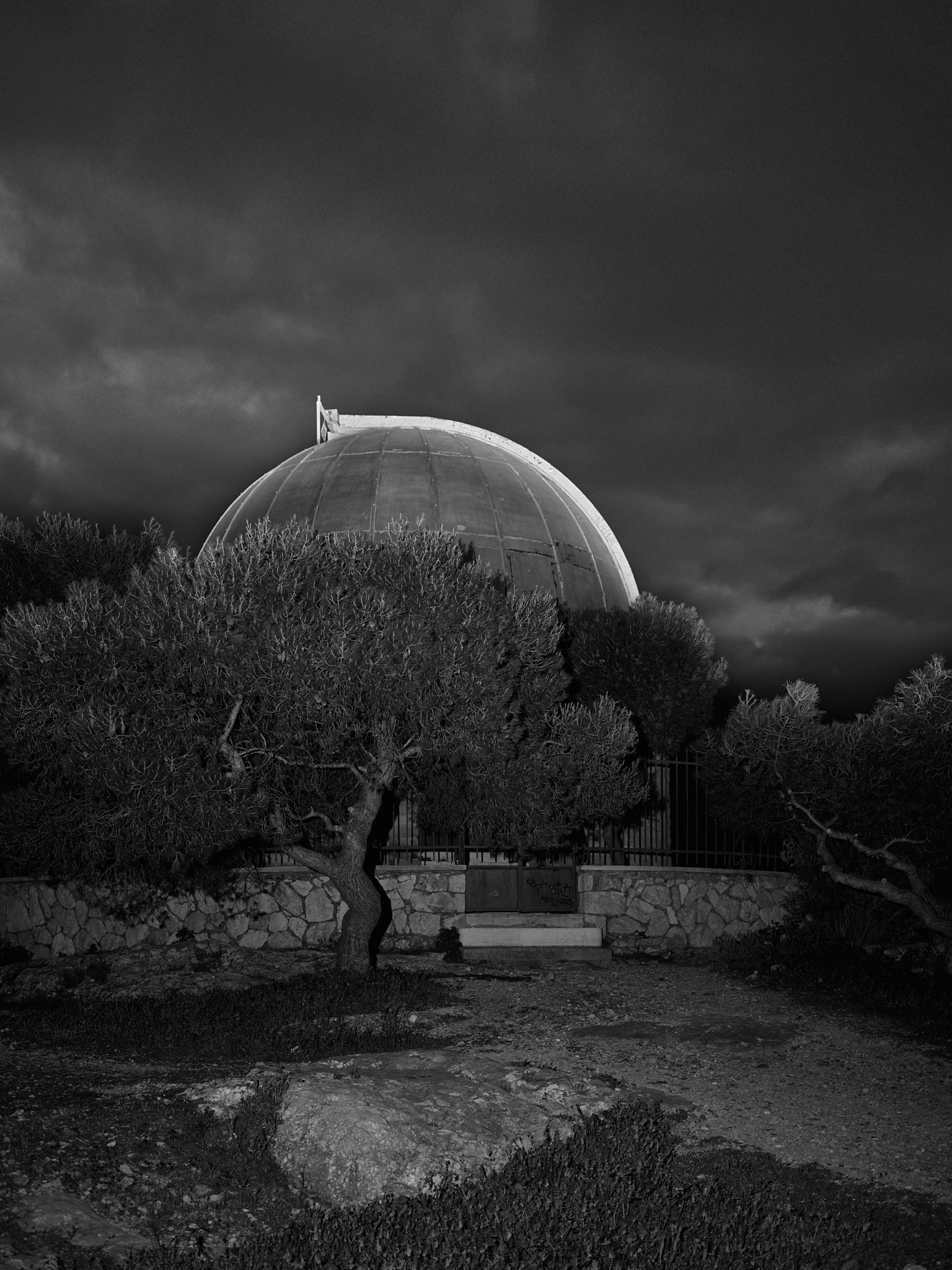Look out
2021
Black swans are rare, unpredictable events that, if they occur, have profound and exceptional consequences. September 11 or the fall of the USSR were black swans. But the pandemic and the ecological crisis are not. They were as predictable as our collective blindness.
I was granted special permission to go out at night in Athens and capture images during lockdown. Alone on the streets, I felt trapped outside, wandering through a post-apocalyptic nightmare—the very apocalypse everyone denies despite IPCC reports. I thought I was documenting the pandemic, attempting to react to the extraordinary, conducting a fictional inquiry into humanity’s fantasized self-destruction. At that moment, I hadn’t fully realized I was walking among signs—clear and unmistakably white—foretelling what awaits us. In the blackness of night, beneath the closed eyes of an entire planet, surrounded by statues and debris, stunned, I felt as though my camera flash revealed the stigmata of our extinction. Alone in Athens, I walked among the remnants of a daily life suddenly abandoned, not unlike Pompeii, within settings worthy of the post-apocalyptic films haunting my imagination: La Jetée (Chris Marker), Twelve Monkeys (Terry Gilliam), The Road(John Hillcoat), Take Shelter (Jeff Nichols). Initially, I believed I was exploring the concept of a ghost town. But what ghost could be more terrifying than that of the future?
“This report (the 6th IPCC report) should send chills down the spine of anyone who reads it. It shows exactly where we are and where we’re heading with climate change: into a hole we keep digging deeper.” Dave Reay, climatologist
Pigment print on Hahnemühle Fine Art Baryta 325gsm
Signed, titled, dated, and numbered on the back
30×40 cm (edition of 5 + 2 AP)
60×80 cm (edition of 3 + 2 AP)
Framing
Mounted on 1mm aluminum (5mm floating border)
Black wood floater frame with visible grain
